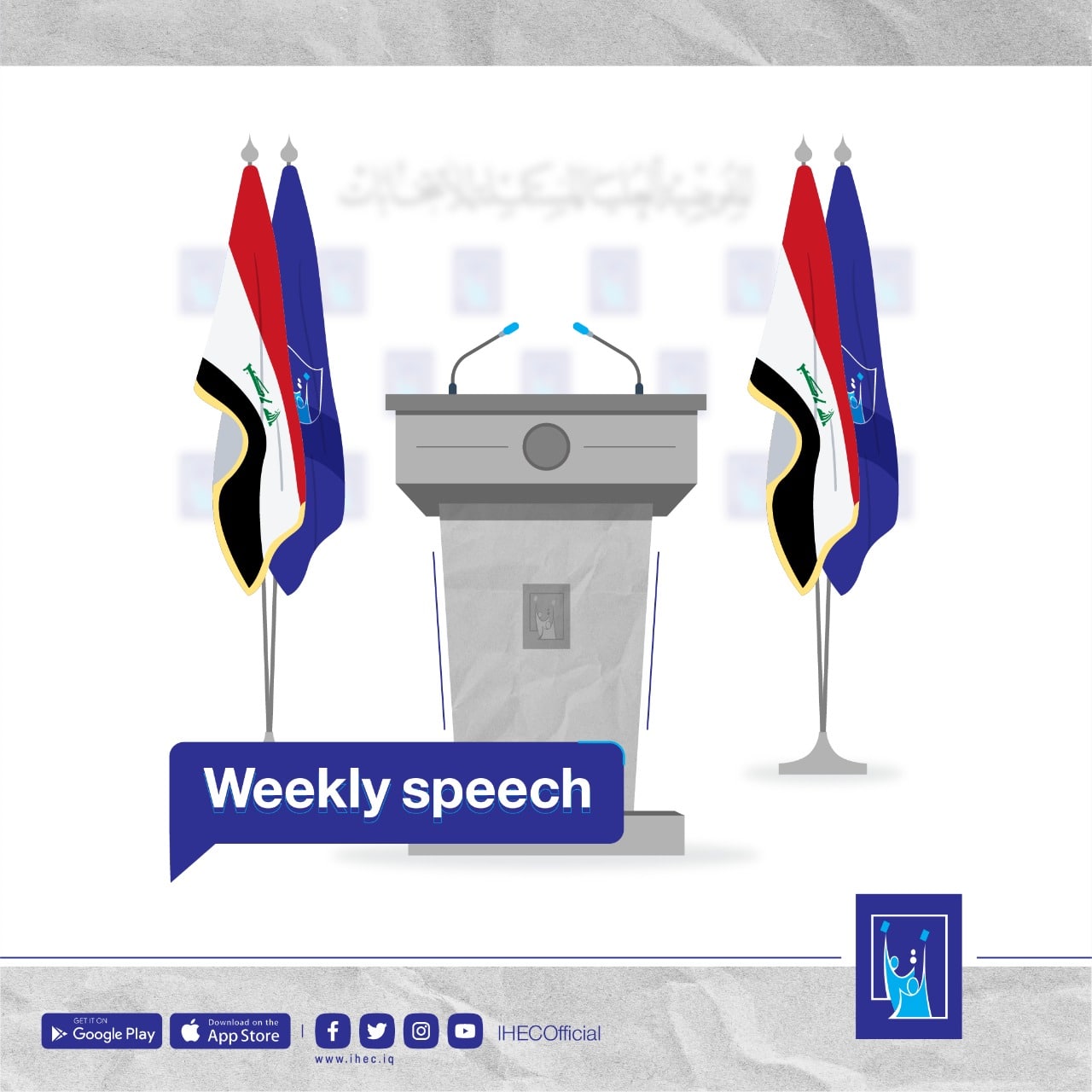
Weekly Statement
• His Excellency the Prime Minister provides full support for IHEC.
• The (BoC) holds regular and special sessions to organize the electoral process.
• The (BoC) approves the sample of the ballot papers used in the local elections.
• The (BoC) approves the media campaign for the phases of distributing biometric voter cards and ballots.
• (IHEC) allocated the electoral numbers for coalitions, parties, and individual candidates.
Weekly Statement
The Prime Minister, Mr. Muhammad Shiaa Al-Sudani, renewed his full support for the electoral process and the work of the Independent High Electoral Commission during his meeting with the the chairman of the Board of Commissioners, the Chief Executive Officer (CEO), and members of the Council, who confirmed that efforts will be made to hold the local elections on the scheduled date on 18th December 2023.
The Board of commissioners (BoC) held several regular and special sessions; To discuss several topics on the agenda, and subsequently issued a number of decisions, including the ratification of the national ballot paper designated sample that will be used for both, general and special voting forms designated for each of the fifteen (15) constituency spread across non-regional governorates, taking into account the size of The paper is proportional to the number of electoral lists in each constituency, and the approval of the media campaigns dedicated to distributing the biometric card, raising awareness, educate voters about the voting procedures for the upcoming governorate council elections, as well as extending the period for updating the voter register of the governorates of the Kurdistan region until the end of the official working day on September the 20th of the current year, which resulted in the registration of (277,024) voters till the 16th of this September, and the ratification of the (voting and counting and sorting) regulation of the regional parliament elections.
In order to preserve the integrity of the upcoming electoral process, the Board of Commissioners decided to establish a mechanism to ensure the neutrality of the work of its employees, who are relatives of the candidates up to the fourth degree, on polling day, in the polling centers and stations, whether they work as staff members or on permanent contracts.
The (IHEC) implemented the first experimental simulation in 10 September, which took place in (927) polling stations to train employees on voting mechanism and to test the software efficiency of the electoral devices, in the presence of the United Nations Assistance Mission for Iraq (UNAMI), and technical representatives of the two companies that manufacture and examine the devices. A lottery was also organized for (134) lists of alliances, parties, and candidates; where each obtains its electoral numbers in preparation for their participation in the electoral event.
The Independent High Electoral Commission in Iraq (IHEC) participated in the meeting of the Supreme Security Committee for Elections, where numbers of topics related to the work of the committee have been discussed; such as the latest developments and the importance of making more efforts to make the work successful and overcome obstacles was emphasized. The committee issued number of recommendations including coordinating work with the Ministry of the Interior to combat rumors affecting the electoral process, and addressing the security services to urge their members to receive their biometric cards, as well as forming security sub-committees at the governorate level, whose mission is to coordinate with the Central Committee to provide a safe environment for all formations of (IHEC).
In text of preserving the rights of operational-contract employees working in the Independent High Electoral Commission in, the (CEO) has been assigned to address the legal department in the Ministry of Finance to express its opinion regarding their referral, as they reached the legal age for retirement.
The Board of Commissioners and the Electoral Administration continue to monitor the performance of electoral offices in all governorates in the tasks assigned to them at the technical and administrative levels, and the electoral procedures and activities that have been implemented according to the operational schedule.
